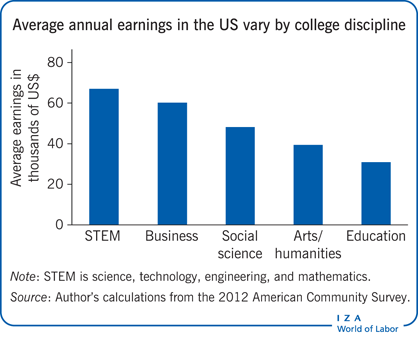Elevator pitch
A postsecondary degree is often held up as the one sure path to financial success. But is that true regardless of institutional quality, discipline studied, or individual characteristics? Is a college degree always worth the cost? Students deciding whether to invest in college and what field to study may be making the most important financial decision of their lives. The return to education varies greatly by institutional quality, discipline, and individual characteristics. Estimating the returns for as many options as possible, and making that information as transparent as possible, are paramount in helping prospective students make the best decision.

Key findings
Pros
College is worth the investment for most people, most degrees, and most levels of debt.
Money does not capture the full value of a postsecondary education.
Rising college costs underscore the need for increased transparency in the economic value of a degree to students.
Estimates from the literature can be used to inform policies such as differential tuition and student loans.
Cons
Returns across different fields of study differ substantially.
Evidence is mixed on the differences in returns across institution types.
Students are increasingly pursuing degrees with less public benefit and greater financial benefit due to increased tuition debt.
Estimating the return to education is difficult due to unmeasured ability.
The decision to attend college and what field to study are far from random: smarter people are more likely to attend college and to attend more selective institutions.